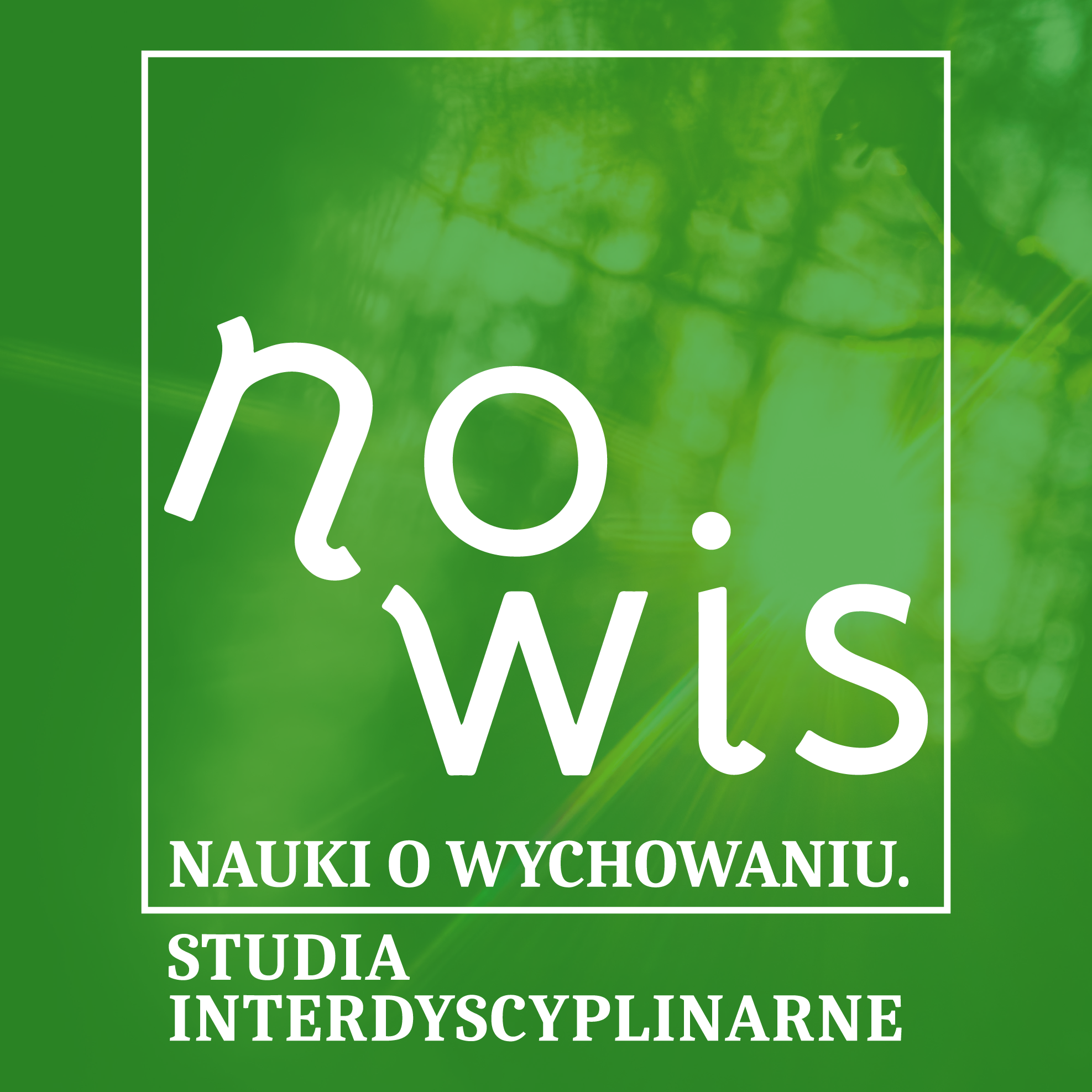Filozoficzne aspekty „bez-względności” słowa w relacji dorosły – małe dziecko
DOI:
https://doi.org/10.18778/2450-4491.05.03Słowa kluczowe:
słowo, M(m)ówienie, milczenie, relacja, fenomenologiaAbstrakt
W artykule podejmuję próbę ukazania obecności słowa – żywego słowa – jako środka języka/mowy w relacji jednego człowieka z Drugim – z kimś bliższym niż ktoś inny, kto swoją obecnością poświadcza obecność tego, który do niego mówi. O obecności słowa można mówić jako o obecności bezwzględnej – zgodnie z myśleniem o języku/mowie przez pryzmat ich konwencjonalnie rozumianych funkcji. Przyjmując za H.-G. Gadamerem, że nasze doświadczenie ma postać językową, piszę o zanurzeniu w języku, w którym, poprzez przyswojenie sobie jego znaczeń, możemy myśleć i komunikować swoje myśli innym oraz komunikować się z nimi – rozmawiać. Obecność słów jako podstawy, możliwości i jakości relacji jednego człowieka z Drugim ma także względny charakter. Za E. Lévinasem przedstawiam prelingwistyczny sposób bycia jednego człowieka z Drugim oraz omawiam milczenie jako pozornie nie-słowny kontakt z sobą samym i z Drugim. Ponieważ koncentruję się na relacji z Drugim, rozwijam także wątek tego, kto mówi do kogo, tym samym wskazując, że mówienie do kogoś mieści się w „projekcie egzystencjalnym” mówiącego. Rozważania skoncentrowane wokół powyższej problematyki stały się także pretekstem do podjęcia refleksji nad wybranymi aspektami słownej i niesłownej relacji między dorosłym a małym dzieckiem. Podjęte w artykule rozważania sytuuję przede wszystkim w perspektywie fenomenologicznej.
Bibliografia
Andrzejewski B. (2016) Filozofia słowa. Zarys dziejów, Poznań, Wydawnictwo Naukowe UAM.
Google Scholar
Dehnel P. (2016) Myśli a sposoby życia. Eseje o filozofii współczesnej, Warszawa, Universitas.
Google Scholar
Derrida J. (1997) Głos i fenomen. Wprowadzenie do problematyki znaku w fenomenologii Husserla, tłum. B. Baran, Warszawa, Fundacja Aletheia.
Google Scholar
Dudek Z. W. (2005) Psychologiczny język kultury w: W. Z. Dudek, A. Pankalla, Psychologia kultury. Doświadczenia graniczne i transkulturowe, Warszawa, Wydawnictwo Psychologii i Kultury ENETEIA.
Google Scholar
Filek J. (2014) Filozofa wstęp do ciszy, Wydawnictwo Znak, nr 707.
Google Scholar
Gadamer H.-G. (1993) Prawda i metoda. Zarys hermeneutyki filozoficznej, tłum. i wstęp B. Baran, Kraków, inter esse.
Google Scholar
Gadamer H.-G. (2008) Teoria, etyka, edukacja. Eseje wybrane, wstęp i redakcja naukowa P. Dybel, Warszawa, Wydawnictwo Uniwersytetu Warszawskiego.
Google Scholar
Gallagher S., Zahavi D. (2015) Fenomenologiczny umysł, tłum. i przedmowa M. Pokropski, Warszawa, Wydawnictwo Naukowe PWN.
Google Scholar
Heidegger M. (1999) Ku rzeczy myślenia, tłum. K. Michalski, J. Mizera, C. Wodziński, Fundacja Aletheia.
Google Scholar
Heidegger M. (2000), W drodze do języka, tłum. J. Mizera, Kraków, Baran i Suszczyński.
Google Scholar
Heidegger M. (2009) Podstawowe problemy fenomenologii, tłum. B. Baran, Warszawa, Fundacja Aletheia.
Google Scholar
Jaspers K. (1990) Język w: Filozofia egzystencji. Wybór pism, tłum. D. Lachowska, A. Wołkowicz, Warszawa, Państwowy Instytut Wydawniczy.
Google Scholar
Jaspers K. (1999) Wiara filozoficzna wobec objawienia, tłum. G. Sowiński, Kraków, Wydawnictwo Znak.
Google Scholar
Lévinas E. (1998) Całość i nieskończoność, tłum. M. Kowalska, Wstęp B. Skarga, Warszawa, Wydawnictwo Naukowe PWN.
Google Scholar
Lévinas E. (2000) Inaczej niż być lub ponad istotą, tłum. P. Mrówczyński, Warszawa, Fundacja Aletheia.
Google Scholar
Lévinas E. (2008) Bóg, śmierć i czas, tłum. J. Margański, Kraków, Wydawnictwo Znak.
Google Scholar
Mech K. (2014) O możliwości poznania Drugiego, „Filozofia religii”, nr 1, s. 1–53.
Google Scholar
Merleau-Ponty (1996) Oko i umysł. Szkice o malarstwie, tłum. E. Bieńkowska, S. Cichowicz, Gdańsk, słowo/obraz terytoria.
Google Scholar
Merleau-Ponty M. (1999) Proza świata. Eseje o mowie, tłum. E. Bieńkowska, S. Cichowicz, Joanna Skoczylas, Warszawa, Czytelnik.
Google Scholar
Merleau-Ponty M. (2001) Fenomenologia percepcji, tłum. M. Kowalska, J. Migasiński, Warszawa, Fundacja Aletheia.
Google Scholar
Michalik J. (2010) Filozofia głosu, Kraków, NOMOS.
Google Scholar
Michalik J. (2011) Głos – transcendencja w języku: o fenomenologii mowy Maurice’a Merleau-Ponty’ego, „Sztuka i Filozofia”, nr 33.
Google Scholar
Opoczyńska M. (2016) Genealogie psychoterapii. Fragmenty dyskursu egzystencjalnego, Kraków, Wydawnictwo Uniwersytetu Jagiellońskiego.
Google Scholar
Ricoeur P. (1991) Podług nadziei. Odczyty, szkice, studia, tłum. S. Cichowicz, Warszawa, Instytut Wydawniczy PAX.
Google Scholar
Ricoeur P. (2005) O sobie samym jako innym, tłum. B. Chełstowski, Wstęp M. Kowalska, Warszawa, Wydawnictwo Naukowe PWN.
Google Scholar
Saint-Exupéry de A. (2000) Mały Książę, tłum. E. Łozińska-Małkiewicz, Toruń, Algo.
Google Scholar
Skarga B. (2004) Co zwie się myśleniem w: taż, Ślad i obecność, Warszawa, Wydawnictwo Naukowe PWN.
Google Scholar
Walczak A. (2011) Symbolika Innego jako Drugiego w: taż, Spotkanie z wychowankiem. Ku tożsamości ipse pedagoga, Łódź, Wydawnictwo Uniwersytetu Łódzkiego.
Google Scholar
Walczak A. (2016) Etyka (w) codzienności wychowania – od nieuchronności do możliwości, „Nauki o Wychowaniu. Studia Interdyscyplinarne”, nr 2.
Google Scholar
Wittgenstein L. (2000) Dociekania filozoficzne, tłum. B. Wolniewicz, Warszawa, Wydawnictwo Naukowe PWN.
Google Scholar
Zając-Jamróz J. (2012) W stronę antropologii słowa. Mieczysław Kotlarczyk, Kristin Linklater, Zygmunt Molik, Zeszyty Naukowe Państwowej Wyższej Szkoły Teatralnej w Krakowie, nr 4.
Google Scholar
Pobrania
Opublikowane
Jak cytować
Numer
Dział
Licencja

Utwór dostępny jest na licencji Creative Commons Uznanie autorstwa – Użycie niekomercyjne – Bez utworów zależnych 4.0 Międzynarodowe.





 Strona czasopisma, prowadzona przez Zespół redakcyjny NOWiS na platformie Index Copernicus:
Strona czasopisma, prowadzona przez Zespół redakcyjny NOWiS na platformie Index Copernicus: 





